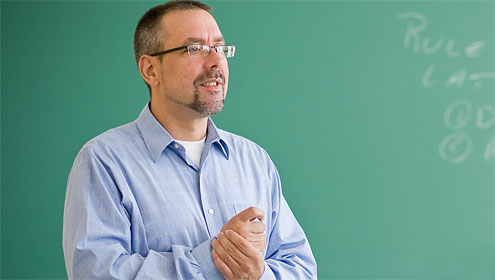
The 8.8-magnitude earthquake that hit Chile on Feb. 27 was many times more powerful than the one that struck Haiti two months ago, but Professor of Political Science Peter Siavelis says Chile has many advantages as it begins its recovery efforts.
“The overlooked lesson coming out of Chile is what a powerful regulatory state means for the difference in the death toll and recovery strategy when compared to Haiti,” says Siavelis, who has taught and conducted research in Chile for years.
Strict building codes, good emergency planning, and a strong national government will make response to the disaster quicker in Chile.
“People want to make comparisons to Haiti, but the response in Chile is more like what we would expect in California or Japan,” he says. “Chile is a well-developed country with the highest per capita GNP in Latin America. The infrastructure, both human and physical, will aid the rebuilding process. The national government has the capacity to respond.”
He credits Chile’s historically strong state, the relative lack of corruption in government, and effective regulatory power, especially in construction, for the country’s capacity to withstand and respond to such a catastrophic disaster. “The devastation would have been much worse without enforced building codes and top-notch emergency services in place.”
Immediate challenges like providing water and food and restoring electricity, and longer-term challenges such as providing housing for more than 2 million displaced people, will be addressed based on years of careful government planning for just such an emergency, he says.
Although the recovery effort will take years, Siavelis expects Chile to retain its place as a strong economic power.
A government transition will take place on March 11 with the inauguration of more conservative president Sebastian Piñera. “For successful recovery, the new government must avoid the temptation to attack the state, which has been at the root of the so-far very successful response to the earthquake,” says Siavelis, who has published several scholarly articles about the current president, Michele Bachelet.
Siavelis studies the executive and legislative branches of Chilean government and is the author of “The President and Congress in Post-Authoritarian Chile.” He lived in Santiago for two years and returns to the country two or three times each year.
Categories: International, Research
Headlines
Wake Forest in the News
Wake Forest regularly appears in media outlets around the world.




